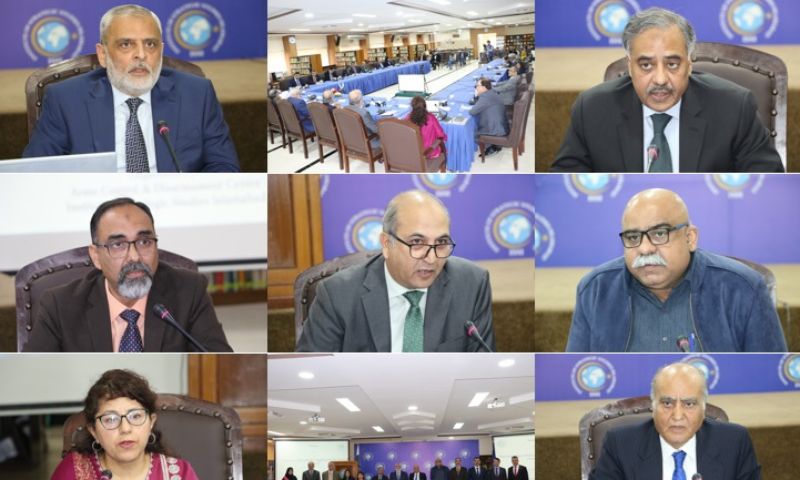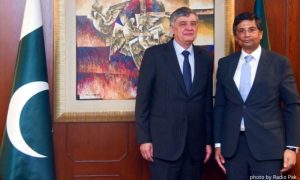ISLAMABAD: The Arms Control and Disarmament Centre at the Institute of Strategic Studies Islamabad organized a seminar under the theme “Pakistan’s Space Policy: Tapping into the Space Potential” on Thursday.
Former Chairman of Pakistan Space & Upper Atmosphere Research Commission (SUPARCO) Maj. Gen. (R) Amer Nadeem delivered the keynote address. Prominent discussants from academia and think tanks presented their perspectives. The event provided valuable insights into Pakistan’s National Space Policy (NSP) and its space potential to accelerate socio-economic development. Major challenges, as well as options available for Pakistan, were discussed.
Maj. Gen. (R) Amer Nadeem underlined the importance of international collaboration and stressed its role in reducing costs and time in space missions. He emphasized strategic partnerships to leverage expertise and resources from other countries, enabling Pakistan to boost its space capabilities more efficiently.
He outlined the National Space Program 2047, highlighting its pragmatic approach tailored to Pakistan’s current technological landscape. He emphasized the necessity for strict prioritization of technologies that align with the nation’s immediate needs and capabilities.
He expressed optimism about Pakistan’s space program, citing the government’s commitment and determination as important drivers of progress.
Salience of Pakistan’s First-ever Space Policy
In his welcome remarks, DG ISSI Ambassador Sohail Mahmood highlighted the salience of Pakistan’s first-ever Space Policy, stating that it provided a comprehensive framework for the future development of the space sector in line with emerging international trends and catering to Pakistan’s crucial national needs.
Noting the crucial role of space technology in modern societies, he highlighted the importance for Pakistan to harness space technology’s potential for socio-economic development and security.
Earlier, Malik Qasim Mustafa, Director of ACDC, said in his introductory remarks that today, the world has entered a new or second space age, and big powers are involved in a space race. They are investing huge amounts to develop and modernize their space programs with dual-use capabilities.
He said that Pakistan is cognizant of these developments and attaches great significance to research and development work in the field of space science, technology and its applications for peaceful objectives and the socio-economic uplift of the country.
Ghazala Yasmin Jalil, Research Fellow at ACDC, ISSI, highlighted Pakistan’s Space Program. In her presentation, she underlined that NSP is a step in the right direction and aims to tackle many challenges the space program faces.
Dr. Ali Sarosh, Associate Professor, Air University Islamabad, emphasized the crucial role of space technology in fostering sustainable development and outlined major considerations for the NSP to contribute to this objective effectively. Highlighting the international consensus on the importance of space technology for sustainable development, he underscored the commitments made by the international community in this regard.


























